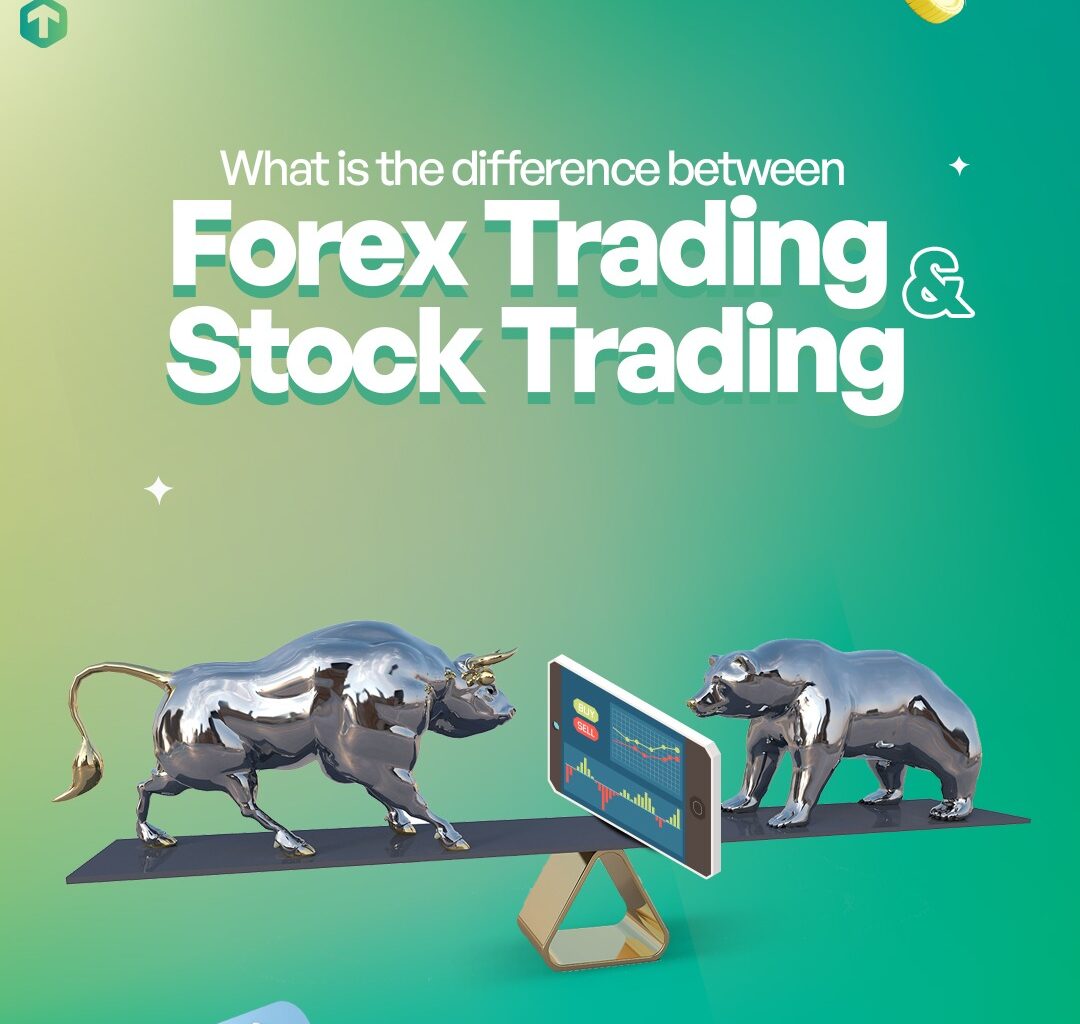There are two popular financial markets in the world: the Forex market and the stock market.
The foreign exchange market, or Forex market, is a global market for trading currencies. It is the largest and most liquid market in the world. The stock market, on the other hand, is a collection of markets where stocks are bought and sold.
If you’re new to investing, you’ve probably wondered: Should I trade forex or stocks? Both markets offer opportunities for profit, but they operate differently. Understanding their key differences can help you decide which one aligns better with your investment goals.
In this blog, I’ll break down the differences between forex and stock trading, covering market structure, trading hours, risk levels, and more.

What Is Forex Trading?
The foreign exchange (forex) market is the world’s largest financial market, with a daily trading volume exceeding $7 trillion. It operates 24 hours a day, five days a week, allowing traders to buy and sell currency pairs like EUR/USD and GBP/JPY.
How Forex Trading Works
- Currencies are traded in pairs (e.g., USD/EUR), meaning one currency is bought while another is sold.
- The forex market is decentralized, operating through a global network of banks, financial institutions, and individual traders.
- Traders profit from fluctuations in exchange rates caused by economic indicators, interest rates, and global events.
Factors That Affect Currency Prices
- Economic data (inflation, GDP, employment rates)
- Central bank policies and interest rates
- Political stability and global events
- Psychological – market sentiment, rumors, and speculation.
Understanding the Stock Market and How It Works
The stock market is a place where shares of publicly traded companies are bought and sold. A share of a company is essentially a small piece of ownership of that company. When you buy a share, you become a shareholder and have a share of the company’s earnings and assets.
The price of a share is determined by the supply and demand for that particular company’s shares. Many different factors can affect the demand for a company’s shares. Such factors include financial performance, industry trends, and news about the company.
What Is Stock Trading?
Stock trading involves buying and selling shares of publicly traded companies like Apple, Tesla, or Amazon. The goal is to profit from stock price movements based on company performance, industry trends, and economic conditions.
How Stock Trading Works
Investors buy shares of a company, gaining partial ownership and potential earnings through dividends.
- Stock prices fluctuate based on supply and demand, influenced by corporate earnings, news, and economic conditions.
- Trading occurs on centralized exchanges like the New York Stock Exchange (NYSE) and Nasdaq during set market hours.
- Although stock and forex trading both involve buying and selling assets, there are some key differences between both of them.
Forex vs Stock Trading: Key Differences
1. Nature of the Market
Stock trading involves buying and selling shares or ownership in individual companies or corporations. Whereas, Foreign exchange trading involves the buying and selling of currencies. It operates on a global decentralized market, and traders aim to profit from fluctuations in currency prices.
2. Market Size & Liquidity
| Feature | Forex Market | Stock Market |
|---|---|---|
| Market Size | Largest in the world ($7T+ daily volume) | Smaller than forex but still large |
| Liquidity | High – easy to buy/sell anytime | Varies by stock popularity |
3. Trading Hours
- Forex: Open 24/5, covering major global sessions (London, New York, Tokyo).
- Stocks: Operate during exchange hours (e.g., NYSE: 9:30 AM – 4:00 PM EST).
4. Volatility & Risk
- Forex: Highly volatile due to global economic shifts and geopolitical events.
- Stocks: Can be volatile, but blue-chip stocks are generally more stable than forex.
5. Price Influences
| Factor | Forex | Stocks |
| Economic Indicators | High impact | Moderate impact |
| Company Performance | No impact | High impact |
| Global Events | Strong influence | Varies by industry |
Read Also: Stock Traders: Definition and Types of Traders

Conclusion
Stock trading and Forex trading are distinct markets with unique characteristics. Stock trading involves ownership in companies and is influenced by corporate performance, while forex trading revolves around the exchange rates between different currencies.
Each market appeals to different types of investors, and choosing between them depends on factors such as investment goals, risk tolerance, and time constraints.
To begin your stock investment journey, download the Trove app today!





